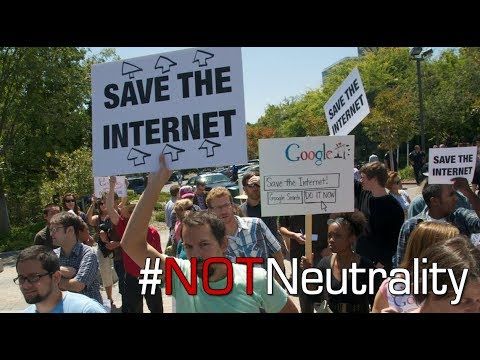
The Rich, and Concentrations of Power.
One of my not-SJW but thoroughly liberal family members asked what I thought of the latest net neutrality bit, and I made two points.
Both were made by the Rageaholic in his #NotNeutrality rant:
Namely, the internet got along for decades without this current version of net neutrality, and that what we had wasn’t really net neutrality but government control. I added that we used to laugh at the “great firewall of China” and the very concept of the government controlling what was allowable, but just because she might trust our government now – or a year ago when it was passed – doesn’t mean all future iterations of our government could be trusted (see Trump).
When asked – not snarkily – what I though of the corporations controlling that kind of power I pointed out that I was suspicious of any and all concentrations of power, and a corporation getting large enough either obtains enough regulatory capture to do what it wants via the government, or like a company town or Shadowrun/Snow Crash megacorp, becomes a de facto government. But most places I have at least some choice between providers even if it’s limited, and I’m not forced to get internet (or else) as we were with health care under the “affordable” care act.
Of course, some concentration is inevitable – when competence and IQ and delayed gratification and their effect on income and success is factored in, you suddenly get a very uneven distribution of wealth and power – and to flatten it out, you have to hand someone the guns and monopoly power to level the playing field, and instead of doing anything productive your enforcers are leveling the field by hammering down or taking from the better off to give to fill in the ditches of the less off, and as people naturally compensate, you’re stuck in a death spiral of wasting time catching those who are “hoarders”, etc. rather than doing anything cool.
And the more competent and intelligent a sociopath is, the more likely he’ll jump on the monopoly of force bandwagon of government power.
The poor we shall always have with us. Small choices, consistently made, iterated over time lead to wildly varying results. The best way to prevent massive concentrations of power isn’t to concentrate monopoly force, and is to reduce the friction required to develop ones own – if one wishes – so that people abusing their power run into consequences. Economic, or… otherwise.
While, as competition goes, the choice between Time Warner, or Spectrum, or whatever the hell they call themselves today, and the local phone company may suck, it at least is more choice than one size fits all government policy, and makes it easier to expand to other options that give us true choices.
